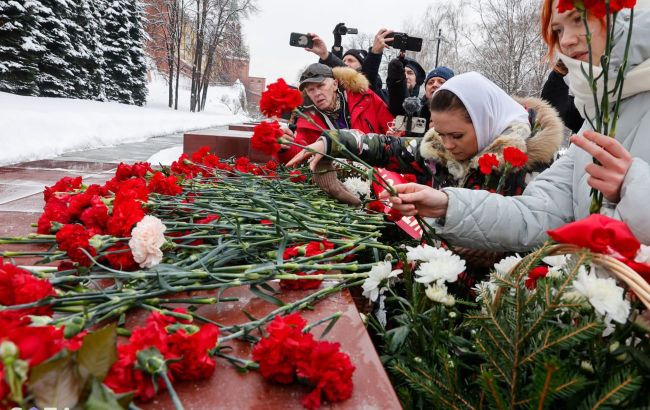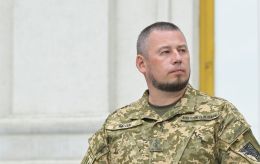Increasingly more cities of RF hold actions demanding return of soldiers from war in Ukraine - ISW
 Photo: The Kremlin is trying to stop the activities of the public movement Way Home (t.me/sotaproject)
Photo: The Kremlin is trying to stop the activities of the public movement Way Home (t.me/sotaproject)
In various cities of the Russian Federation, protests by relatives of mobilized Russian soldiers are gaining momentum, despite previous efforts and attempts by the Kremlin to suppress and block any potential development of a broader public movement across the country on the eve of the presidential elections in March, according to a report from the Institute for the Study of War (ISW).
On Saturday, February 10, Russian opposition news outlet SOTA and Mobilization News released footage showing members of the Russian public movement Way Home laying flowers and gathering near monuments in Moscow, St. Petersburg, Vladivostok, and Yekaterinburg. They call for the demobilization of their relatives.
Mobilization News reported that members of the movement also visited the campaign headquarters of the Russian presidential candidate Vladislav Davankov in Moscow and handed over letters to his team urging demobilization.
The Institute for the Study of War also reminded that last week the Russian authorities attempted to censor the protest by members of Way Home near the Tomb of the Unknown Soldier in Moscow and at the adjacent Manezhnaya Square.
"The extent and complexity of the Kremlin’s efforts to limit the rise of relatives’ movements in support of Russian soldiers underscores the Kremlin’s desperation to shut down these movements, particularly ahead of the March 2024 Russian presidential elections," the report said.
Protests in Russia
On February 3, a protest took place in Moscow organized by the wives of mobilized soldiers to mark 500 days since the start of the partial mobilization declared by Putin in September 2022. The Kremlin subjected the protest to harsh censorship, and some participants were detained by the police.
In mid-January, one of the largest protests in Russia since the full-scale invasion of Ukraine occurred in the Republic of Bashkortostan. Demonstrators rallied in support of a local activist accused of "fanning interethnic enmity."
The last significant protests in Russia were after Putin's announcement of the so-called "partial mobilization" in September 2022. At that time, protests occurred in various regions of the Russian Federation. In the capital of Dagestan, Makhachkala, people were mass-arrested during the rallies.

